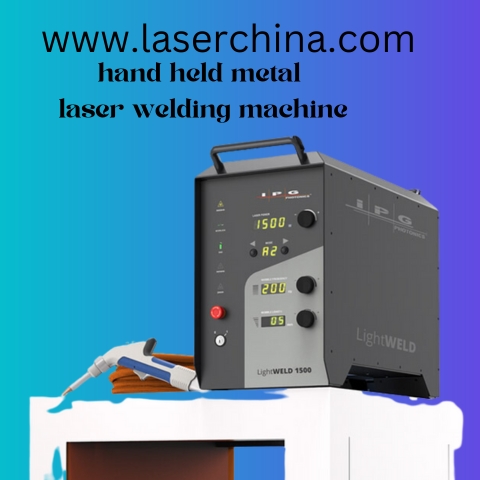Aluminum welding is a vital skill. It is key in many industries, from auto manufacturing to construction. An experienced aluminum welder can transform projects. Both industrial and personal jobs demand their precision and strength. If you need aluminum metalwork, know the welder’s role, the techniques, and how to find the right pro.
The Role of an Aluminum Welder
An aluminum welder specializes in joining aluminum pieces through a heat-based process. Aluminum requires a different approach than other metals, like steel. This is due to its unique properties. It is lightweight, has a low melting point, and conducts heat well. These traits make it harder to weld without special techniques.
A skilled aluminum welder can handle this metal’s challenges. They ensure a strong, reliable bond. Their job is more than fusing two pieces of aluminum. They must also consider the metal’s thermal properties. And they must ensure that the weld does not weaken the structure.
Key Techniques in Aluminum Welding
An aluminum welder may use several techniques. It depends on the project and the type of aluminum. Two of the most common methods include:
- TIG Welding (Tungsten Inert Gas Welding): TIG welding is popular for aluminum projects. It offers precise control over the welding process. This technique uses a tungsten electrode to heat the aluminum. It shields the weld area from contamination with an inert gas, like argon. TIG welding is often used for thinner aluminum parts where precision is critical.
- MIG Welding (Metal Inert Gas Welding): It’s a method often used by aluminum welders. It uses a continuous wire feed as both the electrode and filler material. This technique is faster than TIG welding. So, it is best for larger or thicker aluminum parts. MIG welding requires a steady hand to ensure the welds are clean and strong.
Why does aluminum welding need special skills?
Aluminum welding is far more complex than welding other metals like steel. The metal’s high thermal conductivity means it heats and cools in a short amount of time. This can cause warping or cracking if the welder isn’t careful. Also, clean off aluminum’s oxide layer before welding. It has a higher melting point than aluminum, which can cause defects.
A professional aluminum welder understands these intricacies. They use the right techniques, tools, and materials to avoid pitfalls. This ensures a strong, smooth, durable weld that holds up under stress. A trained welder is essential for aluminum projects. Their expertise is why.
Applications of Aluminum Welding
Aluminum is used in many industries. So, aluminum welders are vital to several sectors. Some common applications include:
- Automotive: Aluminum is now common in car parts like body panels, frames, and engines. Its lightweight nature helps improve fuel efficiency without compromising safety.
- Marine: Aluminum resists corrosion, especially in saltwater. People use it to build and repair boats and marine structures. Welders in this field create watertight, durable welds.
- Construction: In the building sector, aluminum is a top choice for window frames and supports. Its strength and lightness make it a popular choice in modern construction. There, saving weight is important.
- Aerospace: Aluminum’s lightweight properties are critical in the aerospace industry. Plane structures, like wings and fuselages, are often made of aluminum. Welders must ensure these parts are light and strong.
Finding the Right Aluminum Welder for Your Project
When it comes to hiring an aluminum welder, there are a few key things to consider:
- Experience: Aluminum welding requires years of practice to master. Choose a welder with experience in aluminum projects. Ask for examples of their work.
- Certifications: Check that the welder has the necessary certifications and training. Certification ensures that the welder is up to date on industry standards and has the skills required to complete the job to a high standard.
- Aluminum welding requires specialized tools, like TIG and MIG welders. Make sure the welder has access to the right tools for your project.
- Reputation: Don’t trust credentials. Check reviews and testimonials. Ask for recommendations. A welder with a strong reputation is more likely to provide high-quality work.
Importance of Quality in Aluminum Welding
Aluminum welding quality affects the product’s strength and durability. Weak joints from poor-quality welds may fail under pressure. This can cause costly repairs or dangerous situations. High-quality welds make the aluminum structure solid and durable. They ensure it can withstand the demands of its intended use.
An experienced aluminum welder knows how to handle the metal’s unique properties. This results in welds that are both strong and attractive. This is vital in the automotive and aerospace industries. There, both safety and appearance are key.
Conclusion: The Value of an Aluminum Welder
Aluminum welding is a specialized skill. It is vital in many industries. For automotive, marine, or construction projects, hire a professional aluminum welder. It’s key for high-quality results. A skilled aluminum welder, with the right tools, can give you clean, strong welds. They will last a long time.
If you need an aluminum welder, check their experience, certifications, tools, and reputation. A skilled welder will save you time, money, and headaches. Good welds improve your project’s safety and longevity.









